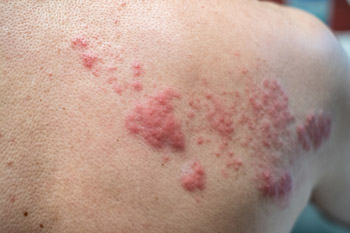Osler, expertise, and phronesis personified
From residency onward throughout a physician's career, becoming a diagnostician requires the ability to distinguish important clues or details from those that are not as pertinent to the situation at hand, a slowly developed skill that ultimately is recognized as an “expertise.”
Sir William Osler, widely considered the father of the specialty of internal medicine, described well the detective work necessary for physicians in our field. Faced with a patient showing an undifferentiated constellation of symptoms, we have developed skills that emphasize methodical history taking, careful physical examination, and a broad knowledge of physiology and pathology. We must understand diagnostic tests that might be needed to ultimately synthesize all that information into a rationally constructed differential diagnosis and subsequent management plan.
We all revel in our identities as detectives and in solving the challenges that patient illnesses sometimes involve. But is Osler correct in his final statement about becoming “expert”? When should we consider phronesis, the “wisdom of experience” defined by Greek philosophers?
Expertise
Being a good detective, and diagnostician, requires the ability to distinguish important clues or details from those that are not as pertinent to the situation at hand. That ability is a slowly developed skill that ultimately is recognized as an “expertise” to which we all aspire. Where and how does that really happen? How do we know when we have achieved it?
Our residency training establishes the building blocks and minimal competencies for us to be certified as internists. Some of the competencies that need to be demonstrated through an internal medicine residency from the Accreditation Council for Graduate Medical Education (ACGME) include synthesizing information, treating complex patients, and managing and leading teams. With a combination of extensive knowledge and critical thinking skills, we are uniquely qualified to diagnose and manage medically complex adult patients comprehensively, including their general preventive care.
Over time, regulatory bodies have been established to oversee residency programs and define skills and knowledge in different specialty fields. But there was a time when there were no such standards, and claims of being a doctor and having certain skills were wide open to anyone. This history is told well by Reginald Fitz, MD, in his 1950 article in the New England Journal of Medicine, “The Rise of the Practice of Internal Medicine as a Specialty.” In the mid-1800s, there were many generalists and growing numbers of different specialists, with uncertainty about the rights of the latter to publicize their abilities. In 1869, the American Medical Association passed a resolution, “That it shall not be proper for specialists publicly to advertise themselves as such or to assume any title not specially granted by a regularly chartered college.”
For the next 50 years, there was debate about what training should occur in different specialty fields and who should oversee it. In 1917, ophthalmologists were the first specialists to establish their own “board of examiners” to “outline a proper course of training …, to examine candidates who prepared themselves to practice the specialty …, and to issue certificates to men who were fortunate enough to survive such a fiery ordeal,” as Dr. Fitz described.
Soon after, there was recognition of a need to better standardize those in internal medicine, and in 1936, the American Board of Internal Medicine was formed as a joint responsibility of the American Medical Association and ACP. The immediate force behind this creation was concern about “subtle forms of medical advertising that many self-styled specialists had come to adopt. In other words, its creation seemed necessary to safeguard medical ethics … and for the benefit of no selfish interests but to protect public health and the integrity of the profession as a whole,” Dr. Fitz wrote.
The presence of such a certifying board, separate from a professional society like ACP, has historically been important. The credential of “board-certified” thereby denotes a qualification of much greater significance and credibility than some self-proclaimed expertise that is seen too frequently today in advertisements and infomercials. I would venture that seeing medical colleagues make grandiose claims of expertise in such commercial settings is viewed negatively by most if not all of us.
Residency training creates the base on which we build ever-increasing knowledge and in ongoing fashion improve judgment on where and how to apply that knowledge. So when in our careers do we become “experts”? And how is that defined?
Phronesis personified
How to differentiate knowledge from expertise is a philosophical question that can be traced to Greek and Roman thinkers. In our clinical world, we refer to “clinical judgment,” which I would define as knowing when and how to apply knowledge to a specific clinical situation. It takes time and experience to develop that judgment. Three years of residency training is a good start but definitely does not create an expert at its conclusion.
The Greeks used the term phronesis to describe the “wisdom of experience.” That is something to aspire to! So true expertise would seem to require an extensive knowledge base, clinical judgment, and years of experience. In our professional world, recognition of expertise typically comes from colleagues.
We all know those physicians in our communities to whom we would always refer the challenging cases and symptoms that other physicians just could not figure out, or those on our hospital wards to whom are always presented the “unknowns” on teaching rounds. They are the ones who naturally role-model behaviors: formally introducing themselves and the team when entering a patient room, interacting respectfully, and somehow developing a remarkable rapport with a brand-new patient within minutes. They are able to elicit critical parts of a history, to explain in a gentle and courteous manner to the patient, and simultaneously to teach to the team on rounds. They seem able to engender an immediate trust in the patient, who is lying in a hospital bed in a gown, frequently inadequately informed and fearful of the unknown, and hence both physically and emotionally vulnerable. By demonstrating respect, empathy, and expertise, such colleagues instill confidence in their abilities and in their caring from patients, the essence of meaningful patient-physician relationships.
Of course we would all like to be looked upon by our colleagues as “experts.” True peer approval is meaningful. But equally important is patient approval. We touch patients' lives every day in ways we don't even realize. Several times my patients have recalled in vivid detail how I had given them advice or explained something with certain words that really struck them, either well or sometimes not so well. Patients sometimes hang on our every word as we explain something over which they have great anxiety, and we might not realize that.
Do the commonly used “patient experience” surveys give valuable feedback in some of these areas? I think they actually do. They could (and should) be much better in content and statistical design. Yet, I know many colleagues who have used such results to positively alter how they interact with patients.
As we look to recognize and learn from those “experts” around us, the College has been exploring development of a program to help internists reconnect with the core clinical skills that form the foundation of internal medicine. We hope that doing so would offer the opportunity to recognize those true experts we see in practice and in academic settings and also provide a pathway to help colleagues fine-tune the knowledge, clinical skills, and experience to personify phronesis. And perhaps in the future we will want to change our name to the ACPP, the American College of Phronetic Physicians.




